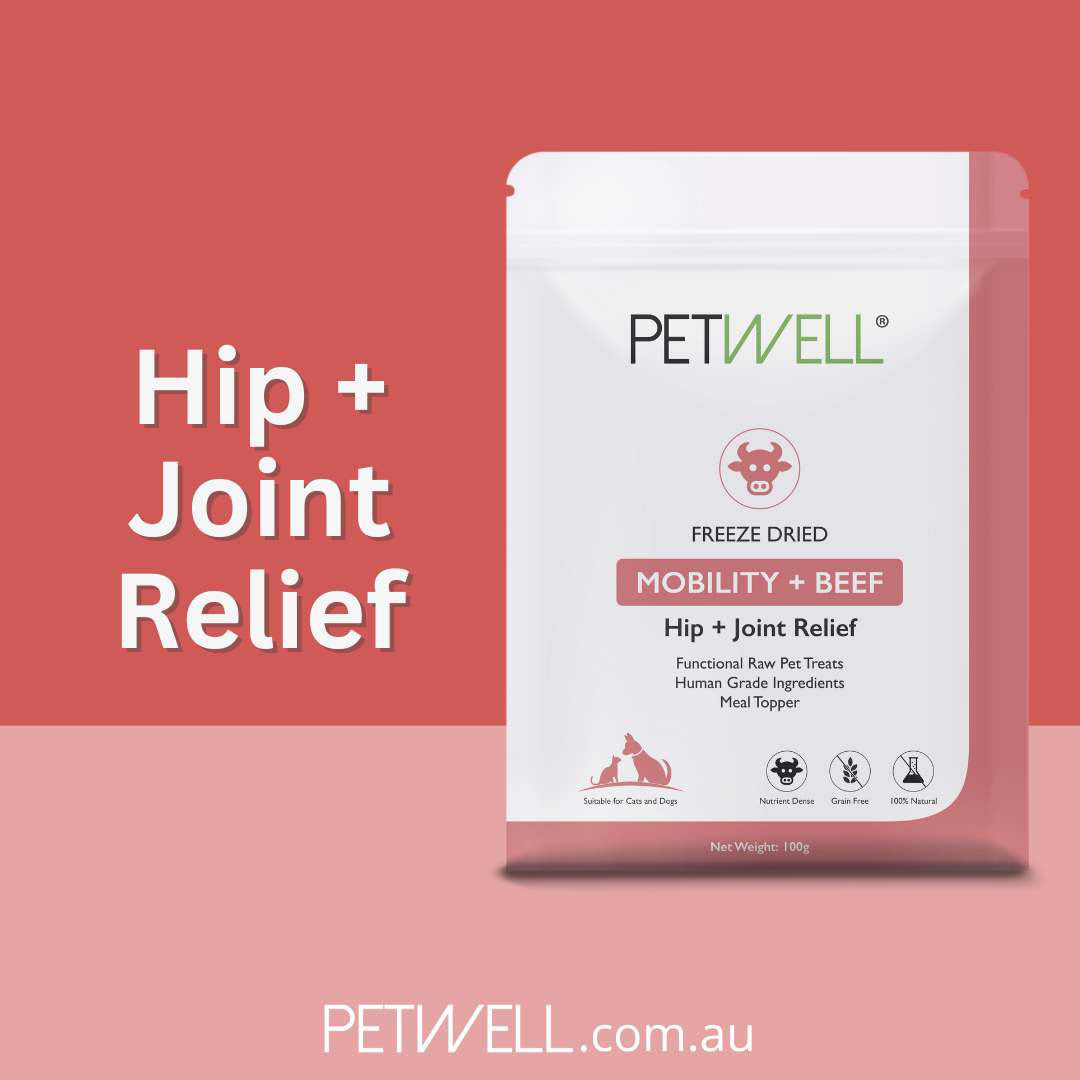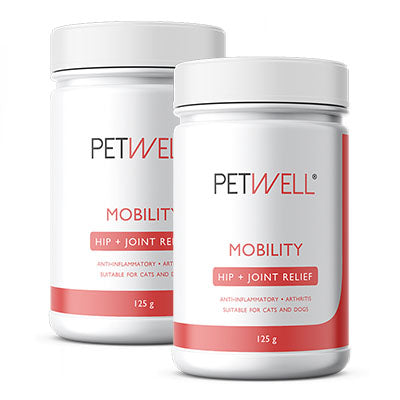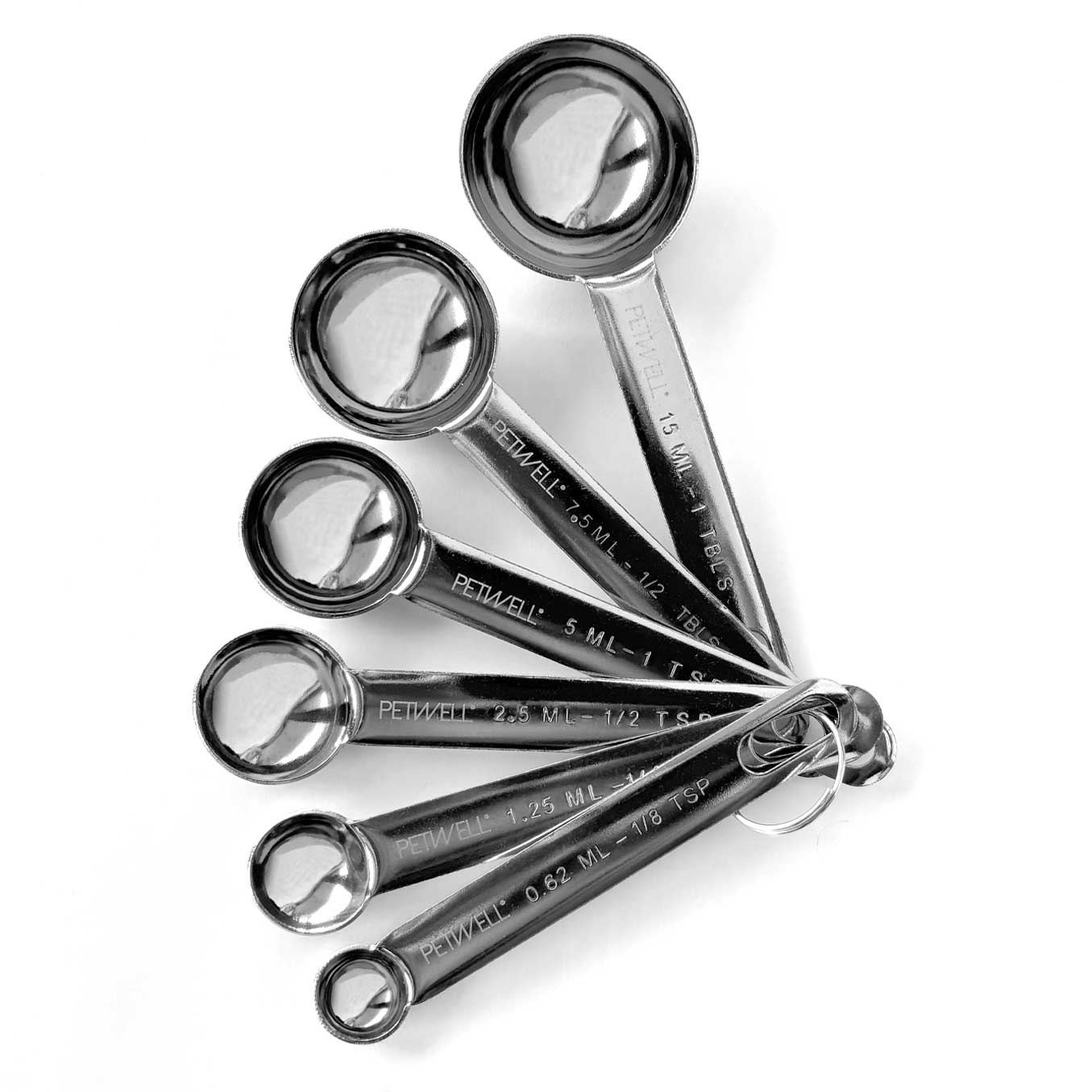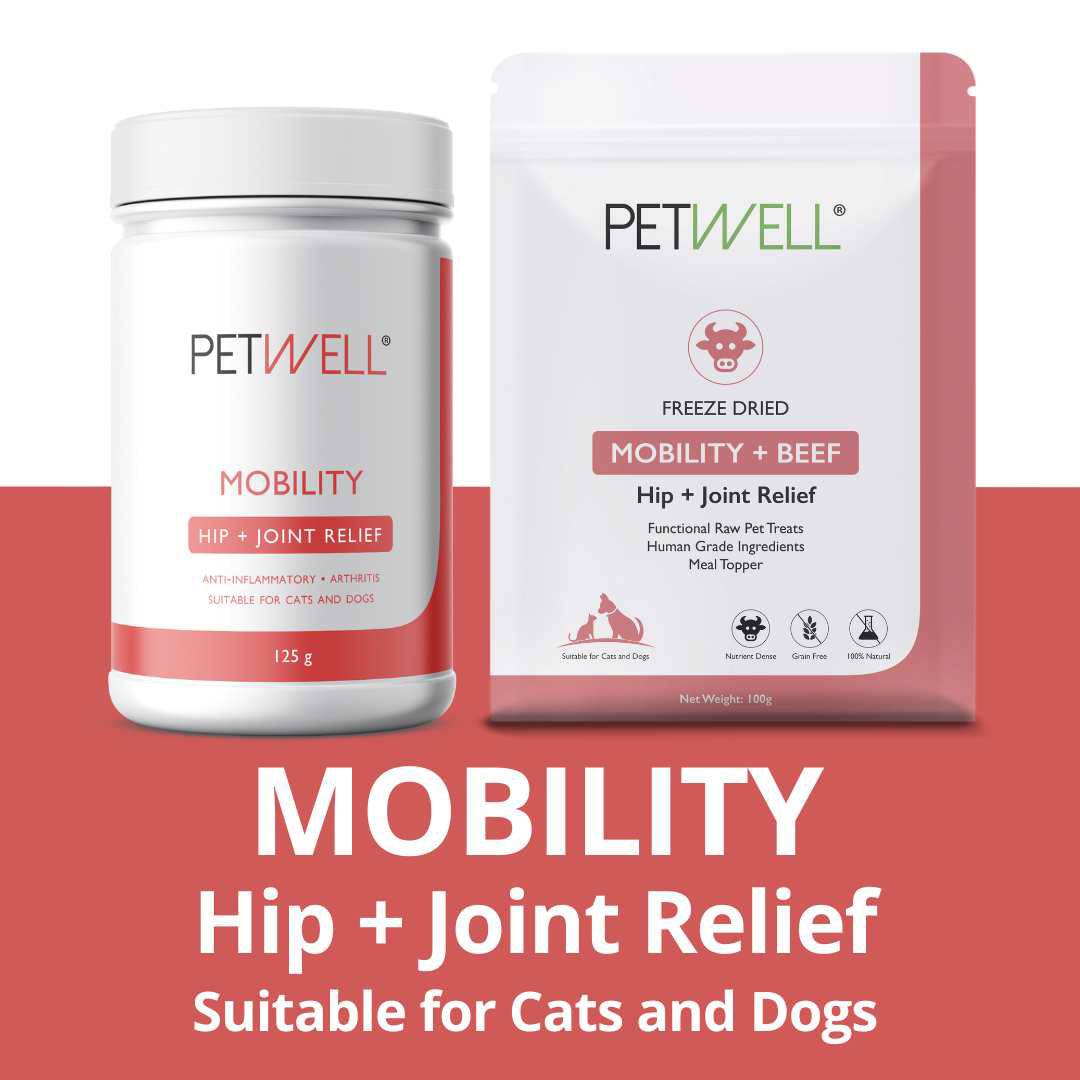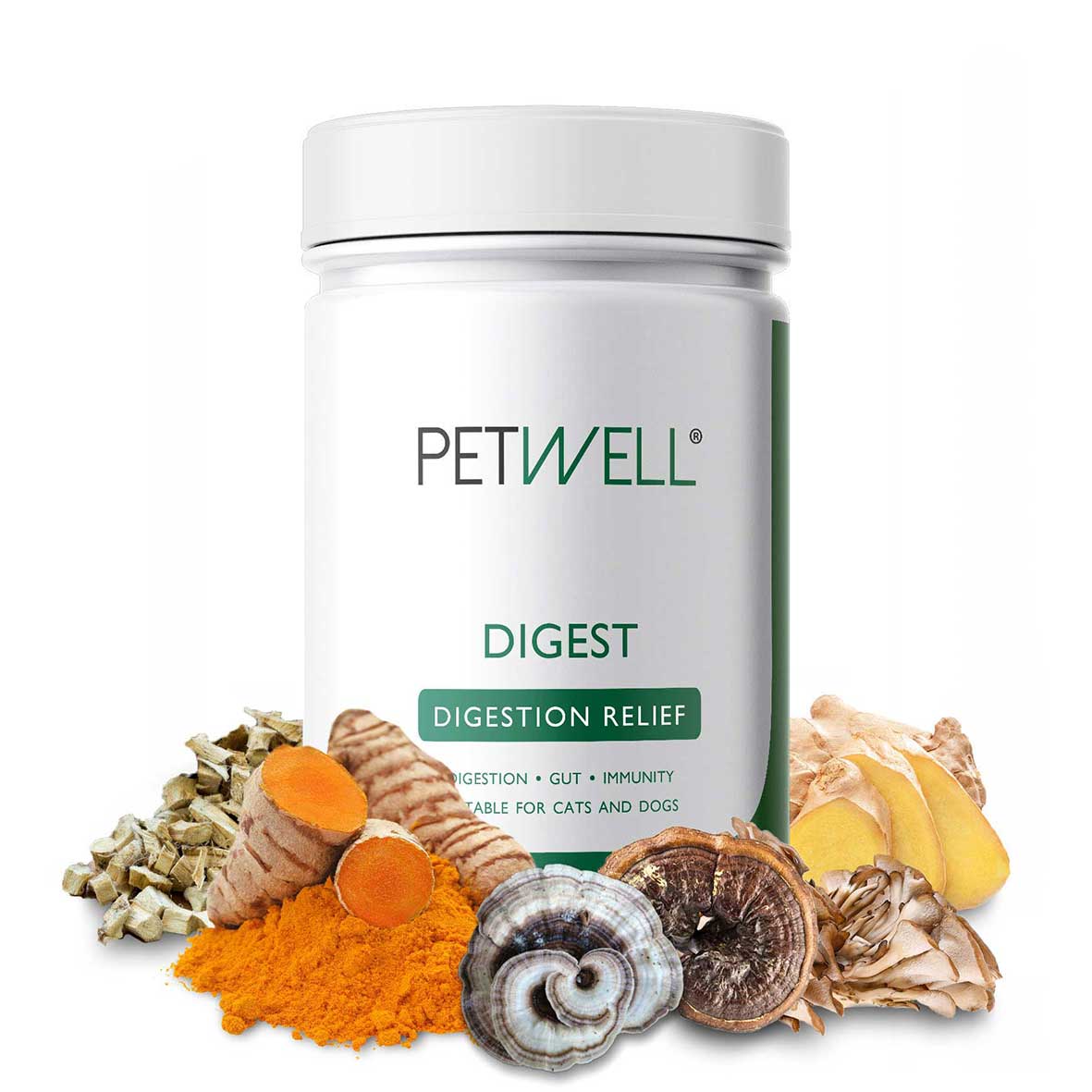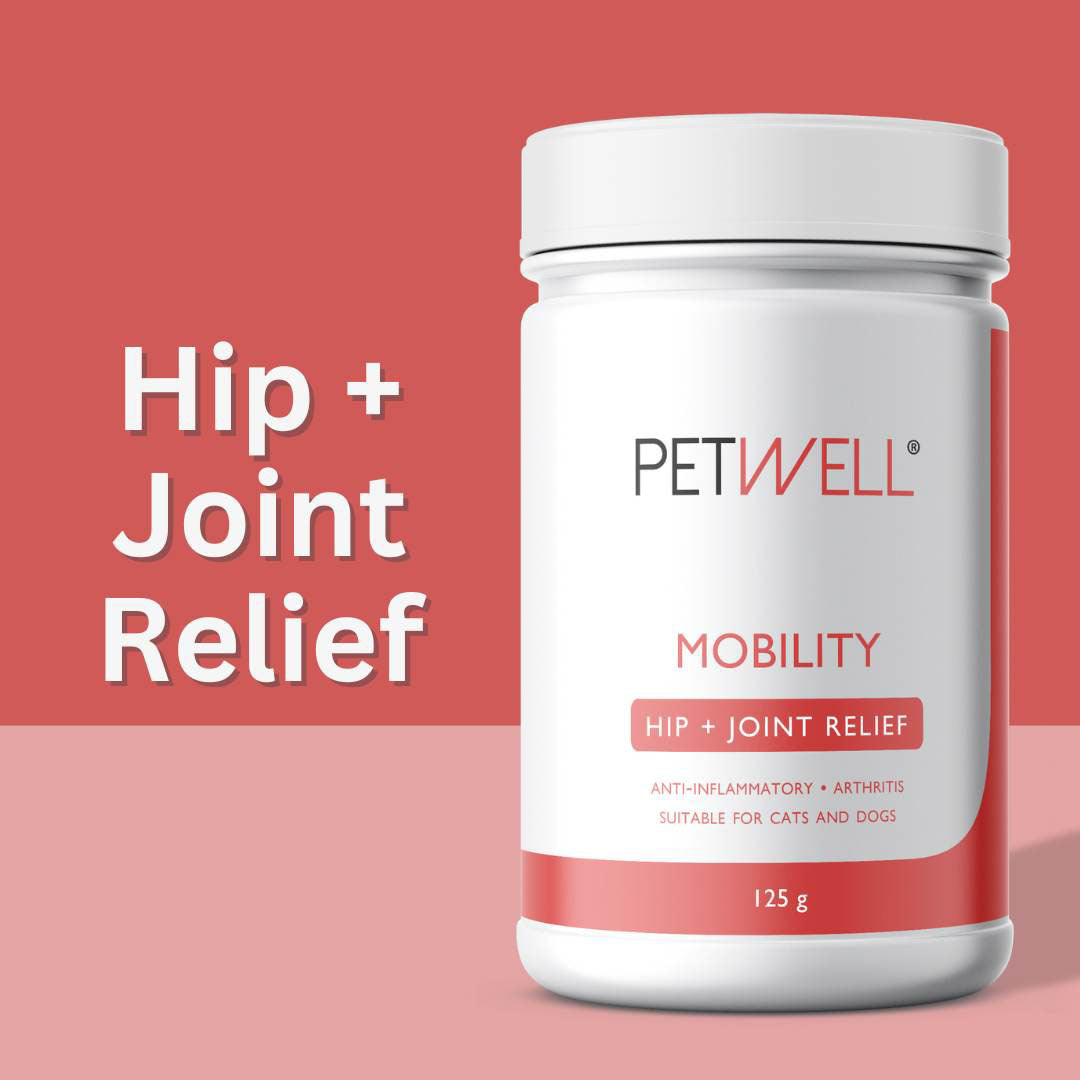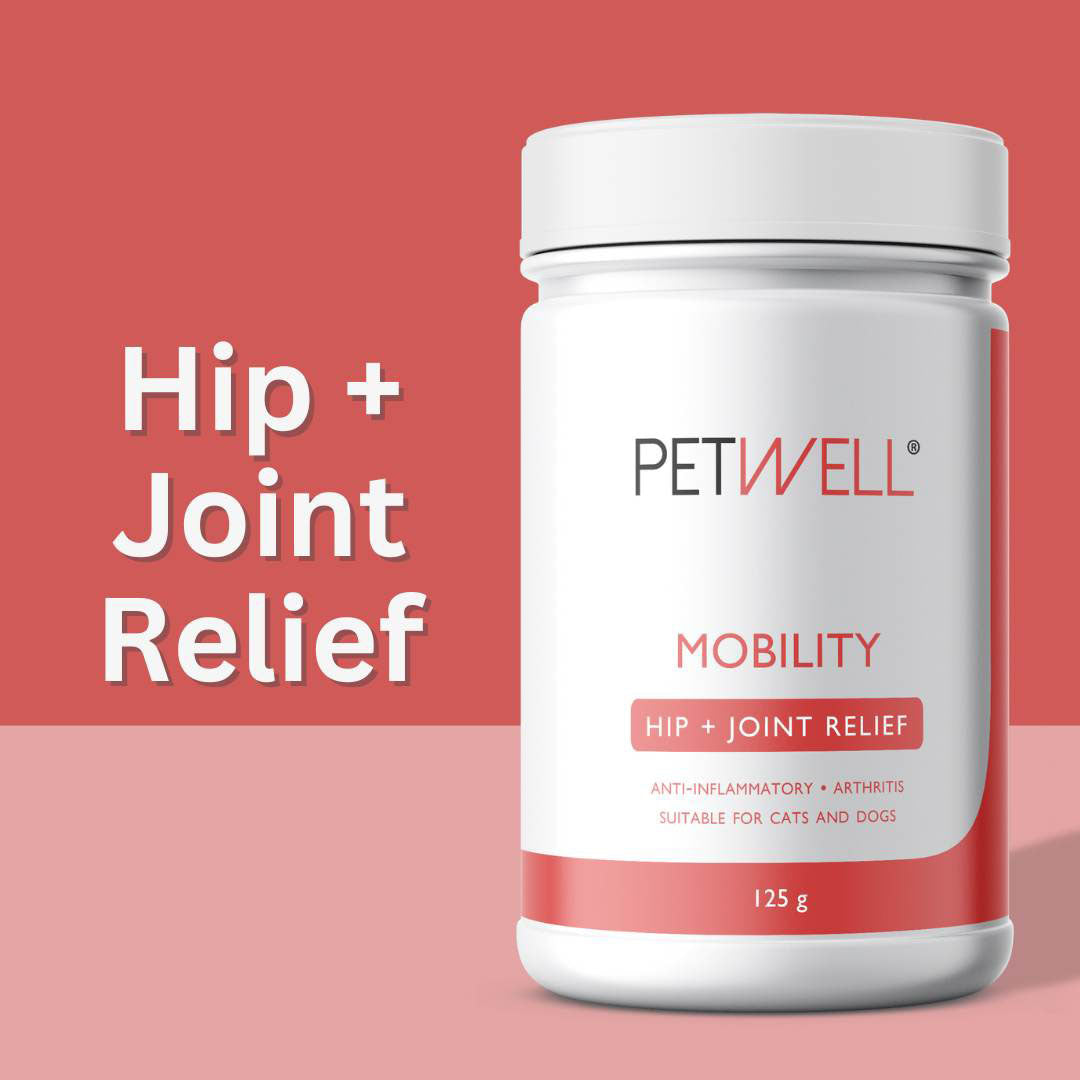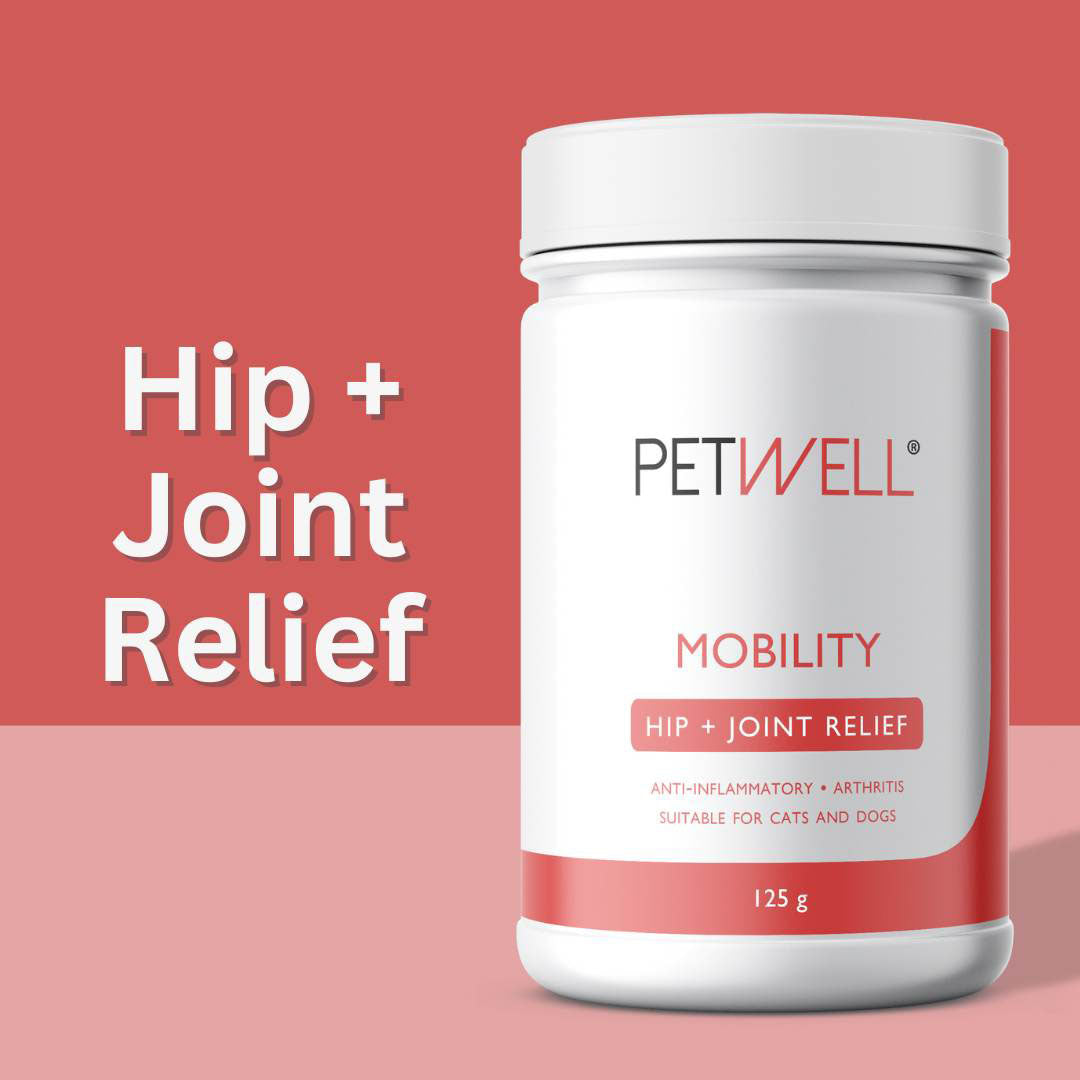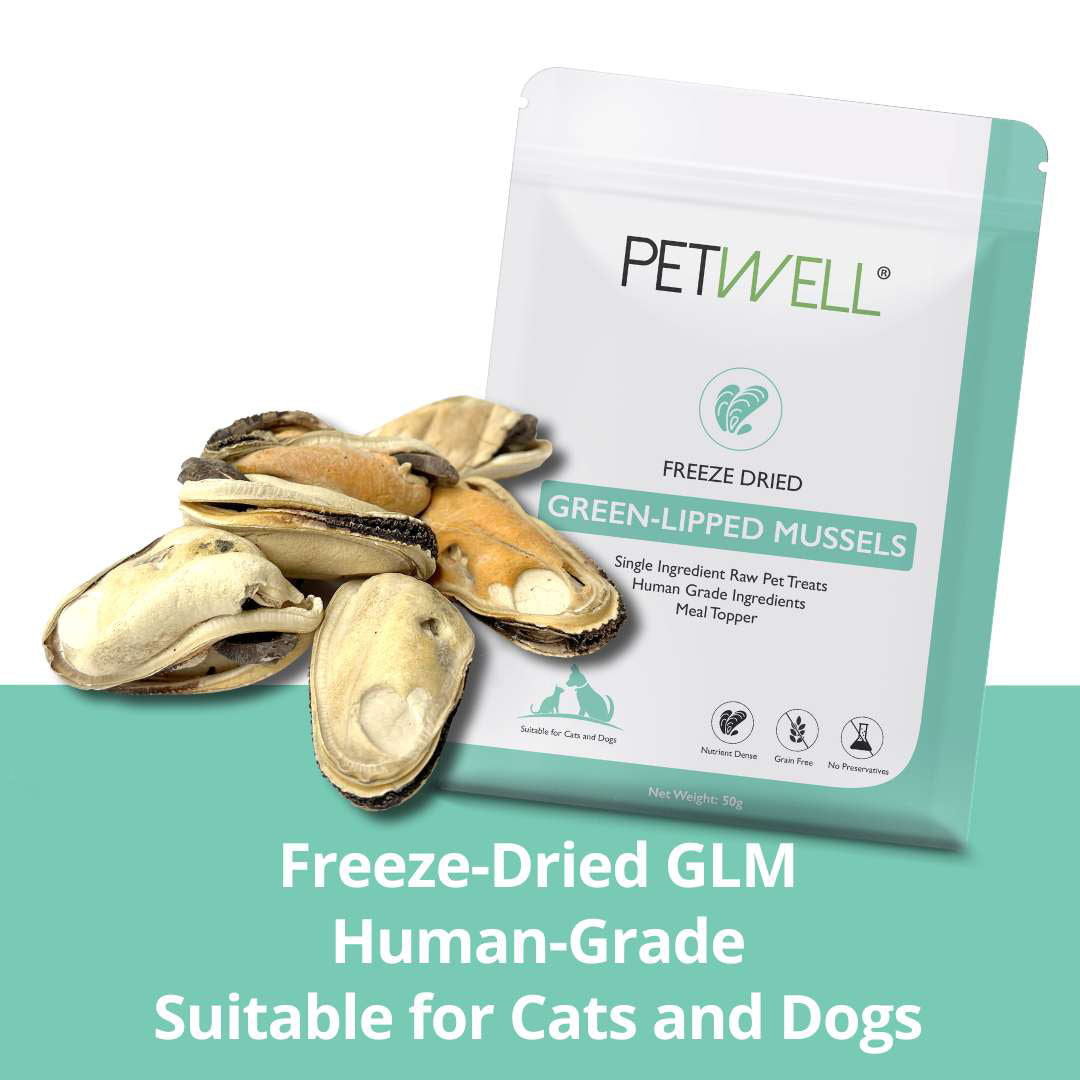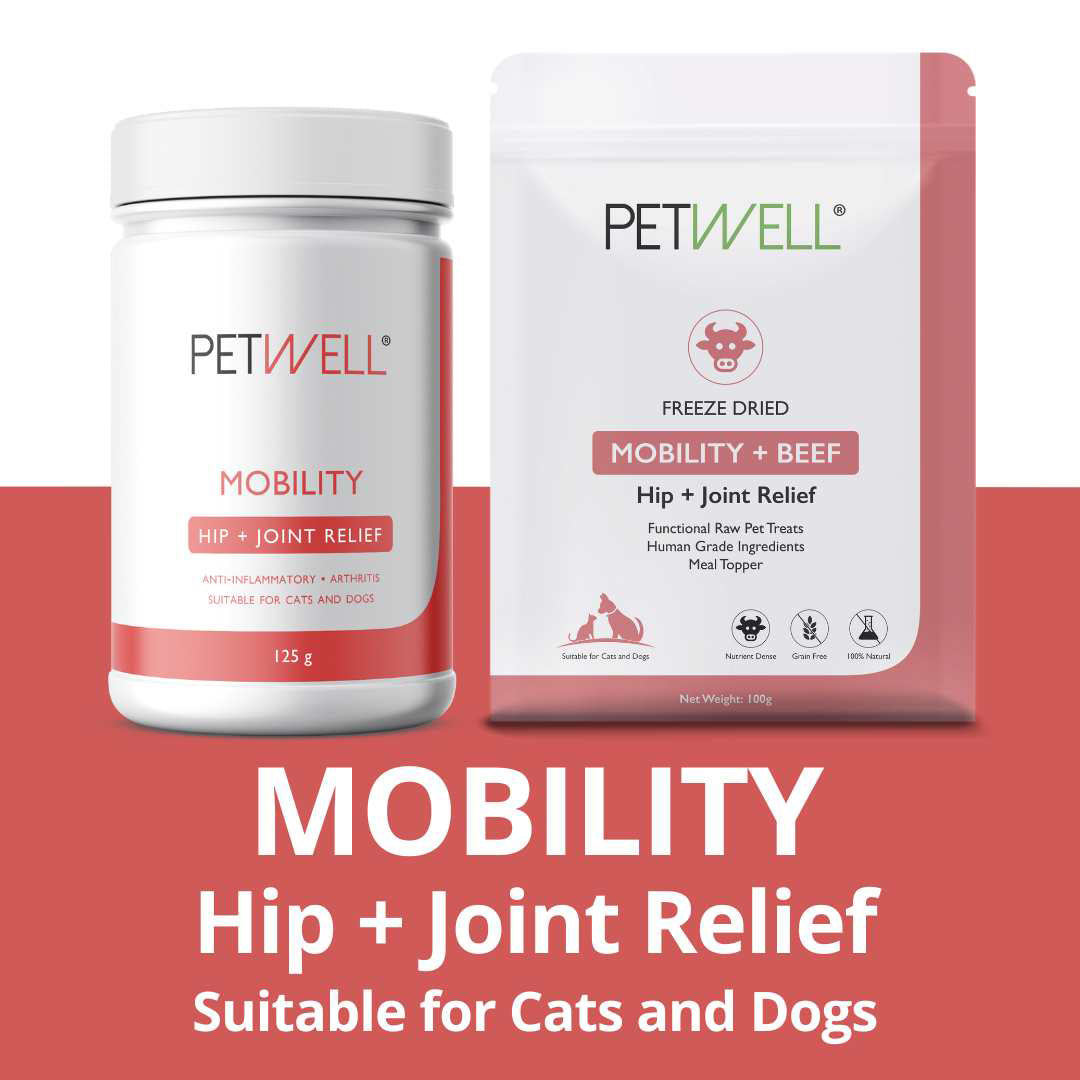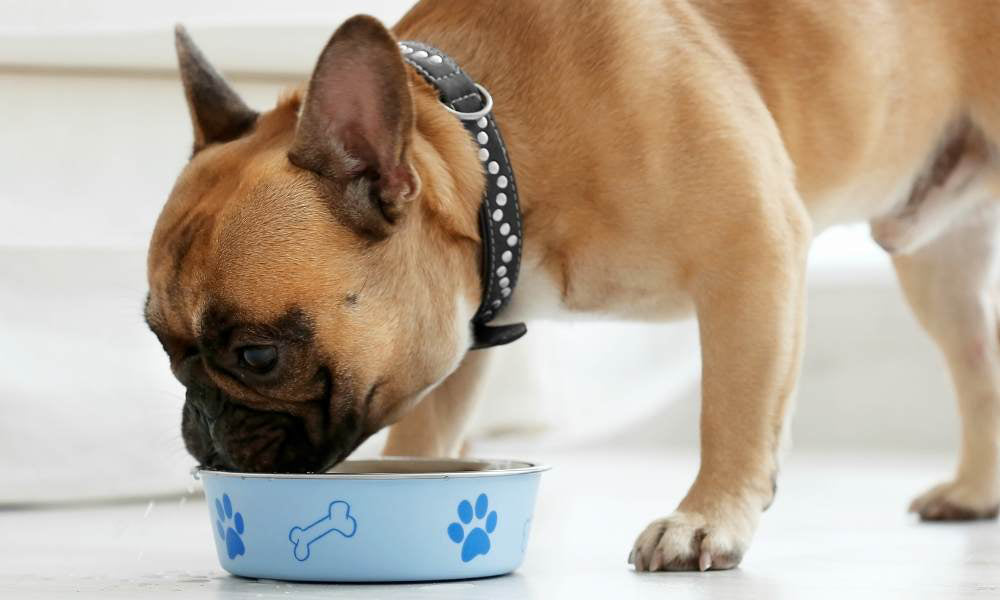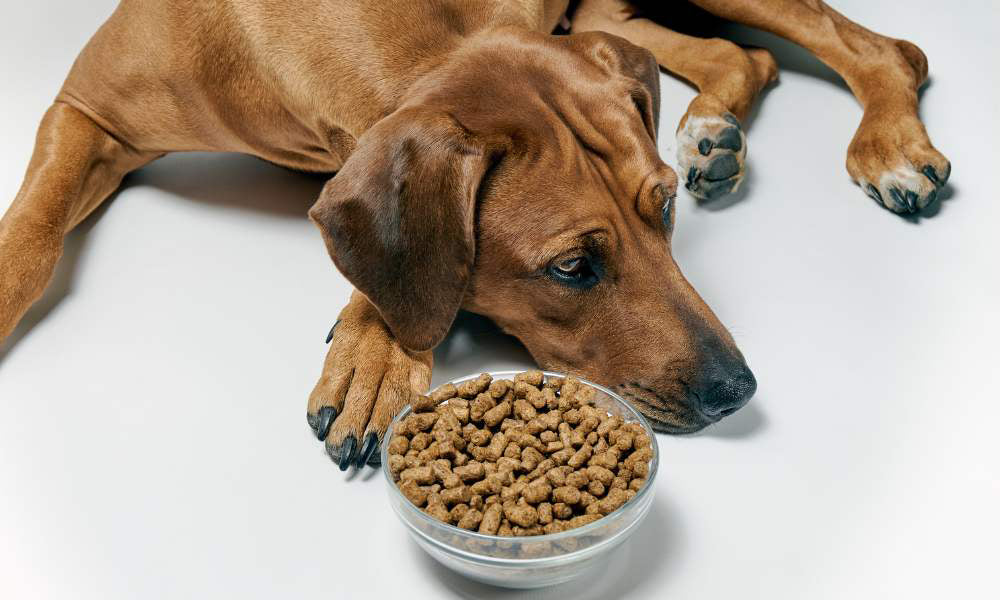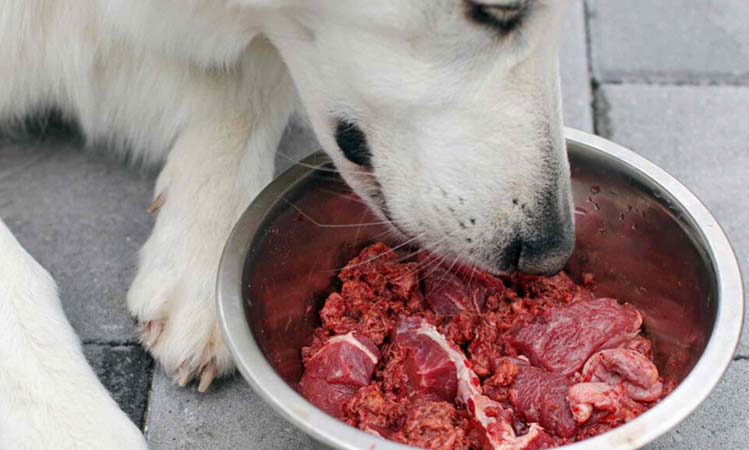It’s not always easy to notice signs of joint pain in dogs! Dogs are experts at pretending they’re fine. A little stiffness? A missed jump? Sometimes it’s easy to shrug off, until you realise your dog isn’t just tired, they’re sore. And joint pain, in particular, is one of those sneaky ones that creeps in slowly.
That’s why catching the early signs of joint pain in dogs matters. The sooner you spot the red flags, the sooner you can take action — like adding natural support to reduce joint inflammation and help them feel better (and zoomie again).
Early recognition and intervention can significantly improve your dog's comfort and quality of life
Joint issues are so common in dogs, that it’s better to get them on high quality joint supplements like PetWell MOBILITY to help prevent issues from raising later!
Let’s walk through what causes dog joint inflammation, what early symptoms to look out for, and how to get ahead of it with proven, natural remedies.
🔥 What is Joint Inflammation in Dogs?
Joint inflammation — often referred to as synovitis — is when the tissues lining your dog’s joints become swollen and irritated. It’s often the body’s response to wear and tear, injury, or immune imbalance.
A bit of inflammation is part of the natural healing process. But if it lingers too long, it becomes chronic and starts to degrade the joint itself — leading to discomfort, stiffness, and eventually, loss of mobility.
Common causes of joint inflammation in dogs:
- Osteoarthritis – age-related degeneration of joint cartilage
- Hip or elbow dysplasia – more common in large or working breeds
- Past injury or surgery – like a torn cruciate or dislocation
- Autoimmune disorders – where the immune system attacks joint tissue
- Obesity – extra weight puts added strain on every step
Read more about What Causes Joint Pain in Dogs?
The longer inflammation is left untreated, the more it can compound — causing pain, muscle loss, and reduced quality of life.
👀 Early Signs of Joint Pain in Dogs
Dogs don’t tend to cry out in pain, they show us in quieter ways. Learning to spot these subtle signs can help you catch joint issues before they get serious.
Mild or early signs:
- Slowing down on walks or at play
- Hesitating to jump into the car or onto the couch
- Appearing stiff after rest, especially first thing in the morning
- Sleeping more during the day
- General grumpiness or being less social
More advanced signs:
- Noticeable limp or bunny hopping
- Muscle loss (especially in the hind legs)
- Licking or chewing at one joint repeatedly
- Change in posture (arched back, lowered tail)
- Struggling with stairs or getting up from a lying position
Get ahead of the game! Learn more about How to Prevent Joint Issues in Dogs
If your dog is showing even one or two of these consistently, it’s worth taking action early. Catching joint inflammation before it becomes chronic arthritis is key.
🩺 When to See Your Vet

If you’ve noticed a pattern in these behaviours, your vet is the best place to start. They may:
- Perform a physical exam to assess joint function
- Check for heat, swelling, or stiffness
- Recommend imaging like X-rays
- Suggest natural anti-inflammatories, supplements, or medications
You don’t have to wait for limping or lameness. Vets often see better outcomes when dogs start joint support before advanced symptoms show.
🌿 Natural Joint Support to Reduce Inflammation
While medication can play a role, long-term support often starts at home. A consistent routine of anti-inflammatory nutrients, gentle exercise, and joint care can make a real difference.
🥄🦴 PetWell MOBILITY & MOBILITY + BEEF Functional Treats
Natural joint support made delicious.
✅ Powered by green-lipped mussel, turmeric, Boswellia, rose hip, MSM, chia seeds & beef bone broth
✅ Reduces stiffness, soothes inflammation, and supports strong, flexible joints
✅ Choose from a daily powder or freeze-dried beef tendon treats — same active ingredients, same powerful results
Whether your pup prefers dinner toppers or treat time, PetWell makes joint care easy (and tasty).
🔗 What to Do Next
Early signs are easy to miss, but now you know what to watch for. Whether it’s that slow rise off the bed or a change in playfulness — it could be their joints asking for a little help.
Take action early. Start with daily support with PetWell MOBILITY, monitor movement, and book that vet check if needed.
Want more ways to help? Read our next post: Natural Solutions for Joint Pain in Dogs — full of food tips, daily mobility routines, and practical ideas to help your dog stay active.
Dog Joint Pain Product Reviews
Reviews for PetWell MOBILITY Hip + joint supplement
"Love MOBILITY, it's loaded with so many active, anti-inflammatory ingredients." - Aurora the Vet Nurse
"I started my dog on Mobility as a prevention more than anything. He is 5 years old. When I read the ingredients it included I thought it was a great idea to get on the front foot. And start him on it now to prevent mobility issues moving forward. I did ask my vet to check it and he gave it the thumbs up." - Brittany
"My two are really fussy eaters but they just love this stuff! My eldest has arthritis and taking mobility has really helped ease her movement. I was so impressed I put my youngest on thrive and he seems to love it." - Deborah
"Toby - our senior cat has been loving ‘PetWell - Hip and Joint Relief’ - I think he thinks he’s a teenaged again… highly recommend!" - Jodie
"Having a senior dog with joint and mobility issues we came across Petwell Hip & Joint Relief, what a game changer in easing her discomfort and giving her some ease of movement." - Jenny
Disclaimer: The entire contents of PetWell emails and website are not to be taken as medical advice. The team at Pet Squad Pty Ltd trading as PetWell encourages you to make your own pet health care decisions based on your research and in partnership with a qualified pet healthcare professional.
Posted By Ayda Hornak - Trained in Canine Psychology and Natural Animal Nutrition Care


